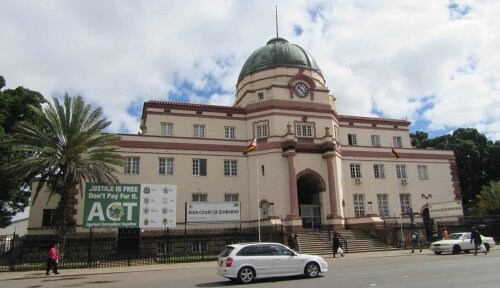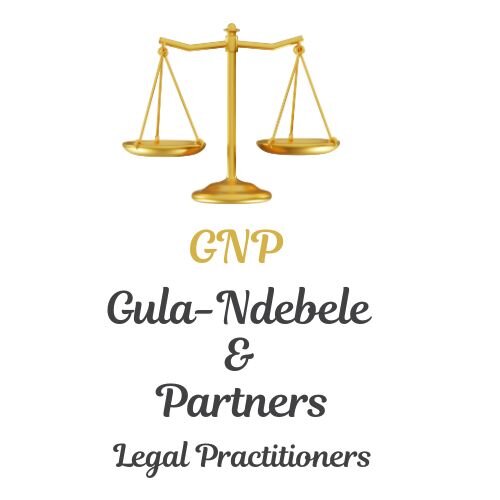Best Drunk Driving Lawyers in Bulawayo
Share your needs with us, get contacted by law firms.
Free. Takes 2 min.
List of the best lawyers in Bulawayo, Zimbabwe
About Drunk Driving Law in Bulawayo, Zimbabwe
Drunk driving, also known as driving under the influence (DUI), is a serious criminal offence in Bulawayo and throughout Zimbabwe. This violation involves operating a motor vehicle while intoxicated from alcohol or drugs, impairing a driver’s ability to safely control their vehicle. Zimbabwe’s laws are designed to protect all road users by penalizing those who endanger themselves and others through impaired driving.
Why You May Need a Lawyer
If you are accused of drunk driving in Bulawayo, you may face significant legal consequences, including fines, loss of your driving license, or even imprisonment. A lawyer is essential in the following situations:
- If you have been arrested or charged with drunk driving.
- If you are asked to appear before a magistrates court for a DUI offense.
- If you are facing the loss or suspension of your driving license.
- If you caused or were involved in an accident while allegedly intoxicated.
- If you disagree with breathalyzer or blood test results.
- If you believe your rights were violated during your arrest.
- If you have previous DUI convictions that may increase your penalties.
- If you need guidance on negotiating plea deals or court procedures.
A qualified attorney can help build your defense, negotiate on your behalf, and explain the legal process so you can make informed decisions for your case.
Local Laws Overview
In Bulawayo, drunk driving is governed primarily by the Road Traffic Act [Chapter 13:11] and related regulations. Here are important aspects you should know:
- A driver is considered over the legal limit if their blood alcohol concentration (BAC) is more than 0.08 percent.
- For professional drivers and public service vehicle operators, lower BAC limits may apply.
- Laws allow police to perform random breathalyzer or blood tests at checkpoints or if they suspect intoxication.
- Refusing a breathalyzer or blood test is itself an offense and can result in penalties similar to those for drunk driving.
- Penalties for DUI can include hefty fines, driving license suspension, mandatory community service, or imprisonment depending on the circumstances and whether this is a repeat offense.
- If a drunk driver causes an accident resulting in injury or death, the charges and penalties will be significantly more severe.
- The court will consider factors such as prior offenses, BAC level, and whether there was property damage or injuries.
Zimbabwe’s traffic police actively enforce these laws, particularly in cities like Bulawayo where traffic volumes are high. Understanding your rights and obligations is crucial if you are stopped or investigated for potential drunk driving.
Frequently Asked Questions
What is considered drunk driving in Bulawayo?
Drunk driving refers to operating a vehicle with a blood alcohol concentration (BAC) above the legal limit, or when your behavior or physical signs suggest impairment due to alcohol or drugs.
What is the allowable BAC limit for drivers in Bulawayo?
The legal BAC limit for most drivers in Bulawayo is 0.08 percent. Lower limits may apply to professional drivers.
What are the penalties for drunk driving?
Penalties can include monetary fines, suspension or revocation of your driver’s license, community service, and even jail time, especially for repeat offenses or cases involving accidents.
Can I refuse a breathalyzer test?
You can refuse, but this is a criminal offense in Zimbabwe and can lead to immediate penalties such as arrest, fines, or loss of your license.
What happens if I am convicted of drunk driving?
Upon conviction, you may be fined, lose your license, be required to perform community service, or be sent to jail depending on the severity of the offense.
Are there ways to challenge a drunk driving charge?
Yes, through your lawyer, you may challenge the evidence, question the testing procedures, or highlight any violations of your rights during the arrest or investigation.
What should I do if I am stopped by the police for suspected DUI?
Cooperate with officers but do not admit guilt. Request to contact a lawyer as soon as possible and comply with lawful requests such as providing identification or submitting to testing.
Will a drunk driving conviction show on my criminal record?
Yes. A drunk driving conviction is a criminal offense and will appear on your record, potentially affecting employment prospects and insurance rates.
Can a lawyer help reduce my penalties?
A lawyer can negotiate plea deals with prosecutors, seek reduced charges, or challenge aspects of the evidence against you, which may lead to lower penalties.
Do special rules apply to foreign drivers in Bulawayo?
All drivers, regardless of nationality, must obey Zimbabwe’s DUI laws. Foreigners charged with DUI may also face immigration consequences or reporting to their home country’s agencies.
Additional Resources
If you need information or assistance regarding drunk driving cases in Bulawayo, consider the following resources:
- Zimbabwe Republic Police (ZRP) Traffic Section: Responsible for road safety enforcement and accident reporting.
- Bulawayo Magistrates Court: Handles criminal proceedings related to drunk driving offenses within the city.
- Legal Aid Directorate: Offers free or subsidized legal advice to qualifying individuals in criminal matters, including drunk driving.
- Law Society of Zimbabwe: Provides referrals to qualified legal practitioners who specialize in traffic law and criminal defense.
- Zimbabwe National Road Administration (ZINARA): Offers information about road usage regulations and license requirements.
Next Steps
If you or someone you know is facing a drunk driving charge in Bulawayo, follow these steps to protect your rights and interests:
- Do not make statements to law enforcement beyond providing basic identification until you have spoken with a lawyer.
- Contact a qualified legal practitioner experienced in dealing with drunk driving cases as soon as possible.
- Gather and keep all paperwork or evidence related to your arrest, including police reports, notices, or court summons.
- Attend all required court hearings and comply with any bail or release conditions.
- If eligible, seek assistance from the Legal Aid Directorate or other legal support organizations.
- Follow your lawyer’s advice closely to ensure the best possible outcome for your case.
Understanding your rights and taking prompt action is the best way to address drunk driving charges and minimize their impact on your life.
Lawzana helps you find the best lawyers and law firms in Bulawayo through a curated and pre-screened list of qualified legal professionals. Our platform offers rankings and detailed profiles of attorneys and law firms, allowing you to compare based on practice areas, including Drunk Driving, experience, and client feedback.
Each profile includes a description of the firm's areas of practice, client reviews, team members and partners, year of establishment, spoken languages, office locations, contact information, social media presence, and any published articles or resources. Most firms on our platform speak English and are experienced in both local and international legal matters.
Get a quote from top-rated law firms in Bulawayo, Zimbabwe — quickly, securely, and without unnecessary hassle.
Disclaimer:
The information provided on this page is for general informational purposes only and does not constitute legal advice. While we strive to ensure the accuracy and relevance of the content, legal information may change over time, and interpretations of the law can vary. You should always consult with a qualified legal professional for advice specific to your situation.
We disclaim all liability for actions taken or not taken based on the content of this page. If you believe any information is incorrect or outdated, please contact us, and we will review and update it where appropriate.










